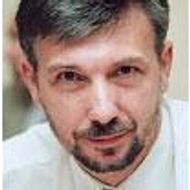HSE University Master’s Programmes to Follow New Educational Standard

The University Academic Council has approved a new educational standard for HSE Master’s programmes, the main feature of which is an higher degree of student freedom and flexibility se in student choice. Master’s programmes may consist of several tracks, each overseen by an academic track supervisor—a new key figure in the educational process.
As a national research university, HSE University is entitled to independent (its own) educational standards, the requirements of which must not be lower than Russia’s Federal State Educational Standards of Higher Education (FSES). The University took advantage of this right and for the first time launched its independent standards in the 2013/14 academic year. Exactly one year ago, the Academic Council approved a new version of the Bachelor’s Degree Educational Standard, which provides the possibility of building various flexible models of teaching. Now the time has come for the Council to update the educational standard for HSE University’s Master’s programmes.
As HSE University Vice Rector Sergey Roshchin explained, the University now defines the educational standards of its Master’s programmes in 40 areas. The new standard will be implemented across all disciplines and unify the framework of Master’s education at the University as a whole. Academic programmes will retain their ability to determine their required professional competences and types of professional activities, key educational outcomes, as well as a set of recommended subjects for students. In accordance with the standard, a range of options for the major, which defines the core of professional training, will be allowed for Master’s programmes. This stands in contrast to Bachelor’s programmes, where the major remains unified for several educational programmes and united by academic area.
Sergey Roshchin, HSE University Vice Rector

The new standard will expand the range of various learning paths initiated by both academic supervisors and students. The need for this is significant, as the Master’s degree by definition involves a much more varied level of training than the Bachelor’s degree, and even within the same area or academic programme, a variety of combinations of competences will be possible. The new framework should ease the implementation of the ‘project turn’, which will strengthen the project component in HSE University Master’s programmes and encourage faculty members to engage their students in their research and analytical work.
The new student learning model contains several key innovations. First of all, a Master’s programme may have several tracks of a general, applied, or research nature. The existing modular academic structure has been preserved, with each student following an individual curriculum and choosing disciplines from a university-wide pool, which is the same not only for all subject areas, but also for all four HSE University campuses. The rapid development of remote technologies in the midst of the pandemic reinforces the possibility of creating such a pool, and special digital services are being developed to ensure the choice and support of all participants in the educational process.
In addition to the academic supervisor and the research (project) supervisors of students’ theses (projects), academic mentors will participate in the implementation of Master’s programmes with different tracks. Each mentor will direct the development of one track, conduct or supervise a ‘mentor seminar’, and play a key role in advising students in designing their individual curricula and setting the competences they must acquire in a given track. In this new system, the role of the academic supervisor can be adjusted to take into account the emergence of mentors.
As noted by Maria Lytaeva, Head of the Academic Council Commission on Key Educational Programmes, the educational standard is a broad framework that sets the direction for development of HSE University’s Master’s programmes, and details will be refined in the process of its implementation. According to Yulia Lezhnina, who headed the working group for finalising the draft standard, the resulting document is the face of HSE University’s Master’s programmes. It not only expands the freedom of the University’s academic community in designing educational programmes, but also makes it possible to present it outside HSE University.
The full implementation of the new educational standard is planned for the 2022/23 academic year, and a pilot phase is planned for the 2021/22 academic year. The list of Master’s programmes participating in the pilot phase will be determined mid-December of this year.

